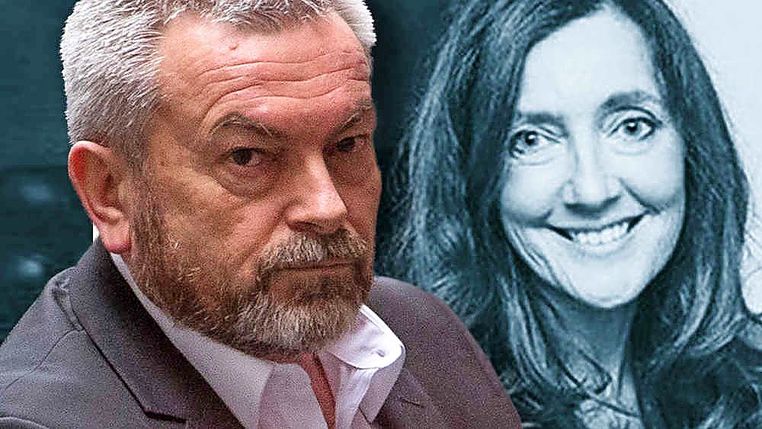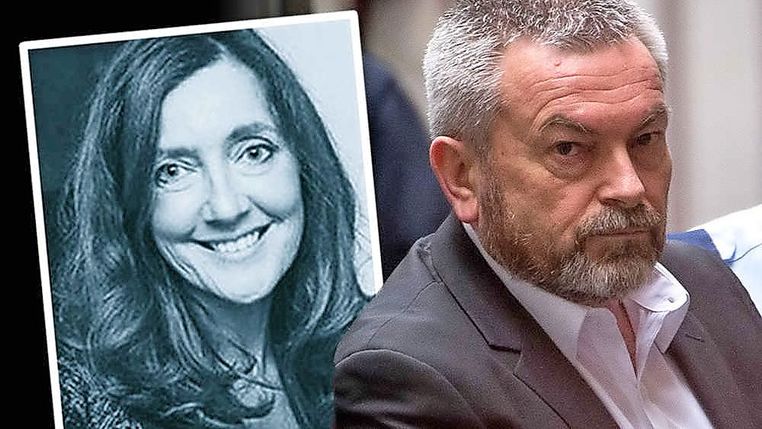
By Stephen Linnell
By Tom Cowie, The Age
For more than two and a half years, everyone thought it was him. He denied it. But he was lying.
Just one day before the most anticipated murder trial of the year was to begin, Borce Ristevski sensationally pleaded guilty to the manslaughter of his wife Karen.
The killer’s admission, so late that a jury was being empaneled, finally provides an answer to the mystery that has gripped Melbourne since Karen vanished in June 2016.
Until Wednesday in the Supreme Court, Borce had staunchly maintained, in the face of intense scrutiny, that he had nothing to do with Karen’s death. The couple’s only daughter Sarah, who gave favourable evidence for her father at an earlier court hearing, now has to cope with the reality it was him all along.
The case against Borce was circumstantial but it pointed to no one except him.
The heat increased quickly as police focused their investigation, as they often do, on the victim’s partner and the person who saw them last. In both instances, that was Borce.
From the earliest days when Karen was still considered a missing person, he faced questions about whether he killed her. At a press conference appealing for help from the public, he was asked by a reporter directly: “Did you kill Karen, Borce?”
The case was front-page news and the hot topic of conversation in every city cafe.
There was a multitude of theories that helped fuel the intrigue: Borce reportedly told family members a stranger might have taken her; his brother Vasko claimed she had fled overseas using a fake passport; her stepson told police the marriage was fake and she had planned to leave.
All turned out to be red herrings.
Even after Karen’s decomposed body was found between two logs in bushland at Mount Macedon in February 2017, Borce maintained the appearance of a loving husband devastated about what had happened to his wife.
He was a pallbearer at her funeral, carrying the casket in front of a tearful family, many of whom thought he was the killer.
Karen’s aunt, Patricia Gray, told police she thought Borce’s account of his movements on the day of her disappearance was “flimsy”. Even his lawyer said he was “suspect No. 1”. Police finally laid a murder charge in December 2017.
At a committal hearing, prosecutors alleged Karen was murdered in their Avondale Heights home after an argument about money before Borce drove the body up the Calder Highway to Mount Macedon. After reporting her disappearance, Borce told police she had gone for a walk and the last thing she said to him was: “I can’t talk to you right now. I am going to clear my head.”
The couple more than $1 million in debt, with their clothing business Bella Bleu racking up losses of $326,000 between 2012 and 2016.
Police built their case on a combination of CCTV footage and pings to mobile phone towers that would show Borce had driven Karen’s black Mercedes Benz on the day of her disappearance.
Borce initially kept this detail from police, one of a number of actions that would prompt a prosecutor to accuse him of withholding information and fabricating facts to “distance himself from the crime”.
To begin with, he claimed to have stayed at home and then went out later for a shift as an Uber driver.
Five days after Karen’s disappearance, Borce told investigators he drove the Mercedes on the Calder Freeway towards Gisborne as part of a trip to get fuel and visit the clothing store, before he turned around and went home. The trip lasted 80 minutes, he said.
But police believed he was away for longer than that, calculating it at two hours and 19 minutes. Enough time, they figured, for him to spend 20 minutes at the park to hide a body.
There were other oddities that made this case stranger than most true crime sagas. Perhaps the strangest was a TV crew from
A Current Affair spotting Vasko Ristevski metres from where Karen’s remains were found months earlier.
At a court hearing last July, Borce’s daughter Sarah said her mother was the more aggressive in her parents’ relationship and she would sometimes go for walks to clear her head.
In the days after her mother went missing she called Karen’s phone and continually checked Whatsapp to see if she had logged in.
What she didn’t know is that Borce had deactivated both his and his wife’s phones after killing her the day before.
“What happened?” she asked her father, according to a police statement.
Borce replied: “You know what she gets like when she gets onto one thing and then onto another and continues it.”
At all of his court hearings, Borce maintained a steely gaze under the white-hot spotlight that comes with a murder accusation.
Through it all, Borce denied killing his wife. Finally, he has admitted the truth.








